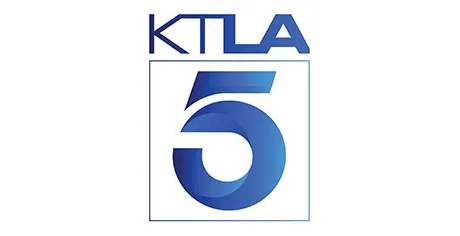Disclaimer: Consumer legal fundings and advances are not loans under applicable financing laws. Rockpoint’s products are non-recourse, meaning if you don’t win your case, you don’t have to pay us back. Receiving financial support in connection with a legal case is typically (and oftentimes incorrectly) referred to as a “lawsuit loan” or “loan.” Therefore, for the ease of search references, these terms may be used in this context to refer to our funding products, but we maintain our separateness from consumer loan products in all legal aspects.
When a person dies with a will, it streamlines the distribution of their assets and the resolution of their debts. When someone dies without a will — known as dying “intestate” — it can complicate the process significantly.
Each state sets its own laws about intestate estates, which means Iowa probate law may have different rules and procedures than California probate law. However, there are general principles, procedures, and guidelines that may prove useful for residents of all states.
This post discusses what heirs need to know about intestate estates, including how probate works, who receives estate assets, and what taxes may apply.
What Is Intestacy?
To die intestate means to die without a valid will. Intestacy includes cases in which the deceased individual never wrote a will, as well as cases in which a will exists but the court cannot validate it.
Wills typically name a personal representative (or executor) to manage the estate. In the absence of a will, the court must appoint an administrator. Often a close family member, this person’s job is to locate legal heirs, pay debts and taxes, and distribute assets.
An administration proceeding like this may also be required for assets that are not directly addressed in an existing will.
What Is Intestate Succession?
When writing their wills, individuals can choose whom they want to receive their possessions, including friends, unmarried partners, and charitable organizations. When a will doesn’t specify how assets should be distributed, the administrator must follow the state laws for intestate succession.
These laws generally distribute assets to close relatives in a set hierarchy. The default order of intestate succession varies by state but typically looks like this:
- Spouse: States usually give much of the estate to the deceased’s surviving spouse (if any). The exact portion may depend on whether the deceased also had living children.
- Children: If there is no spouse, states typically split the estate among surviving children or their children (the deceased’s grandchildren).
- Parents: If the deceased had neither a spouse nor children, the surviving parents often inherit the estate.
- Siblings: If none of the above applies, the estate may go to the deceased person’s siblings (or the siblings’ children).
- Extended family: Next in line are typically more distant relatives, such as grandparents, aunts, uncles, and cousins.
- Escheat to the State: When no living next of kin can be located, the assets will go to the state.
What Property Is Subject to Intestate Laws?
Not all assets go through probate, which means not all assets are subject to intestate succession laws. For example, the following assets will go directly to their legal owners: jointly owned property, trust assets, and life insurance policies and retirement accounts with named beneficiaries.
However, the following property must follow state intestate succession laws for distribution:
- Individually owned real estate
- Solely owned bank accounts without a designated beneficiary
- Investments without a transfer-on-death (TOD) designation
- Personal property, such as vehicles, furniture, and belongings
- Certain business interests and intangible personal property (e.g., intellectual property rights)
Intestate Estate and Inheritance Taxes
Federal “death taxes” only apply to very large estates (those over $13.61 million). However, heirs should be aware of other estate-related taxes that may affect them.
State Estate Taxes
About a dozen states have an estate tax, although the threshold that triggers them varies. For example, Connecticut’s 2024 exemption amount is $12.92 million, while Oregon only exempts $1 million. Assets in a trust may be shielded from estate taxes.
Estate taxes are deducted from the estate before the distribution of assets to beneficiaries. So, while heirs don’t need to worry about paying these taxes themselves, they can reduce the overall value of an intestate estate.
State Inheritance Taxes
About half a dozen states impose an inheritance tax, which differs from an estate tax. Rather than coming out of the estate, inheritance taxes are paid by the heirs who receive the assets.
Tax rates often vary by how closely the heir is related to the deceased. Surviving spouses don’t typically have to pay state inheritance taxes; surviving children may pay a low rate, and distant relatives or unrelated heirs often pay the highest rates.
Capital Gains Taxes
Even if you don’t pay any taxes when you receive an inheritance, you may have to pay them when you sell it. Any profit made between when you inherited the asset and when you dispose of it may face federal short-term or long-term capital gains taxes.
Drawbacks of Intestate Succession
If you’re a likely heir to an intestate estate, you should be aware of the following downsides:
- The potential for unintended heirs to receive property, such as biologically close relatives who have little relationship to the deceased
- The exclusion of non-traditional family members, such as unmarried partners and stepchildren
- Higher legal fees and court costs due to more complicated probate proceedings
- A prolonged estate distribution process as the court determines legal heirs and their rightful inheritance
- The potential for disputes among heirs, which may lead to costly litigation
Can’t Wait for Probate To Conclude? Call Today To Request a Cash Advance!
You may know your loved one wanted you to have certain assets. But if they left behind an intestate estate, receiving your inheritance can take longer than you expected.
If you need money now, contact Rockpoint Probate Funding. If you meet certain criteria, we can offer you a cash advance on your inheritance so you can pay your immediate expenses.
Call (888) 263-8588 or contact us online 24/7 to see how we can help. No income minimums or credit checks are required!













